Django Unchained Review
With Django Unchained, Quentin Tarantino has turned wholly satisfying filmmaking into a science. Sure, this film might not be as emotionally affecting as Jackie Brown. It might not be as novel as Reservoir Dogs, as ambitious as Pulp Fiction, as playful as Kill Bill, or as bold and audacious as Inglourious Basterds. But Tarantino’s latest is arguably the most complete package of any film in 2012, and when the only “complaint” you can come up with regarding a film is that it isn’t as good as its great director’s very best, you’re probably nitpicking with a real champion of a film.
Jamie Foxx plays this film’s title character—a slave who, in the film’s opening scene, is freed by a German dentist-turned-bounty-hunter, Dr. King Schultz (Christoph Waltz). Django is one of the only men in the South who knows the identity of the Brittle Brothers; They whipped him and his wife, Broomhilda (Kerry Washington), and brought them to auction where they were separated forever. But Schultz offers Django a deal: Track down these brothers and spend the winter as partners in bounty hunting, and in return, the good doctor will do everything in his power to find and free Django’s wife.
The hunt for the Brittles doesn’t last but an hour, and the bulk of the film occurs at “Candieland,” the enormous plantation home of Brunhilda’s new owner, Calvin Candie (Leonardo DiCaprio). He’s a frightening man and also one of the richest plantation owners in Mississippi. Even slimier than Calvin is his black housekeeper, Stephen (Samuel L. Jackson). The film ultimately turns into a brutal battle of wills between both black-white pairs with Django and Schultz lying through their teeth in order to simply gain access to Broomhilda. Getting her out? A whole other story.
Both halves of Django Unchained have their own style, tone, and high points. The first half is funnier. A Jonah Hill-and-Don-Johnson-led KKK summit is its comedic high point, but every monologue delivered by Dr. King is simply genius. For the second Tarantino film in the row, the best-in-show award goes to Christoph Waltz. The competition is stiffer here, but Waltz is just so delightfully at ease. It’s really a pleasure to watch him work his magic.
The second half has a very different look; The painterly sunsets and sweeping vistas King and Django travel across are replaced by darkly lit, blood-tinted rooms in a truly hell-like plantation mansion. Our heroes are surrounded by scum, and as such, Tarantino doesn’t hold back from showing us their very worst qualities—the very worst qualities of any man. His screenplay packs a real punch in that respect. It’s obviously not as pop-culture-heavy as past efforts (even Basterds had the scene in the basement of the pub), but the man hasn’t lost a step these two decades since Reservoir Dogs.
This bloody second half is also dominated by Leonardo DiCaprio. Giving what’s his best performance since The Departed, he’s playing severely against type and the most morally backward character of his career. It’s jump-out-of-your-seat work; He’s charismatic and will woo you in, but you really don’t know where he draws his line, and the depths of his hatred and villainy never cease to astound.
Then, there’s Samuel L. Jackson. There are parallels between he and Django in that they’re both “above” the average black man in the South circa 1958, and it doesn’t become clear until late in the film whether either, both, or neither of them is serving the cause of the enslaved negro. What we do know about Stephen is this: He walks with a limp, he loves Calvin, and he really doesn’t like the idea of a black man riding a horse.
Though he’s the film’s title character, Django’s quite an understated individual. That’s not to say he doesn’t act when called upon. On the contrary, his arc is big and he seizes the day with gusto. Foxx underplays him, but appropriately so. After all, he’s a recently freed slave stuck in the deep South, and (on a more cinematic level) there are three big scene-stealers orbiting around him for nearly three hours. While it certainly would have been interesting to see what someone like Will Smith or Idris Elba brought to the role, Foxx’s presence in the film is never a sore point.
Robert Richardson’s photography is (predictably) some of the best of the year. Ditto the production design. What was a point of concern going in—the film’s editing—turned out to be nothing. Fred Raskin proves a worthy successor of the late Sally Menke. The film’s rhythms are welcome (it moves like a Tarantino film) and sometimes, a little surprising (see the aforementioned Jonah Hill scene, as well as a very revealing scene that pops up late in the film).
If this is the “most” anything within the Tarantino oeuvre, Django Unchained is probably his most thematically rich film. Superficially, it’s a revenge film set in the faux West, but there’s so much beneath the surface about identity (Schultz gives Django the last name of “Freeman”) and masculinity. It’s a really terrific movie on every level, and it’s absolutely worthy of Tarantino’s towering filmography.

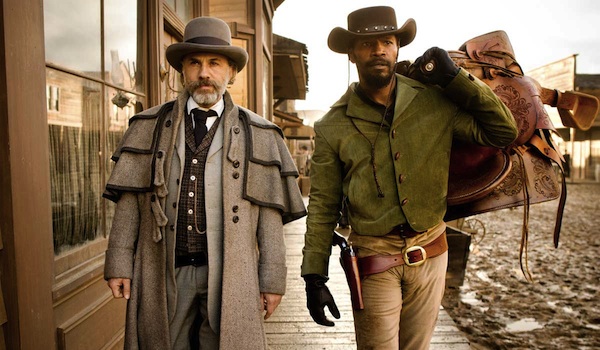

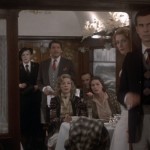
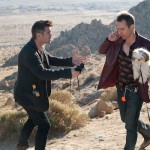
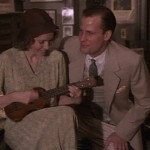

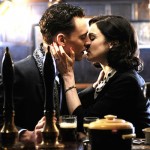








One Response to Django Unchained Review